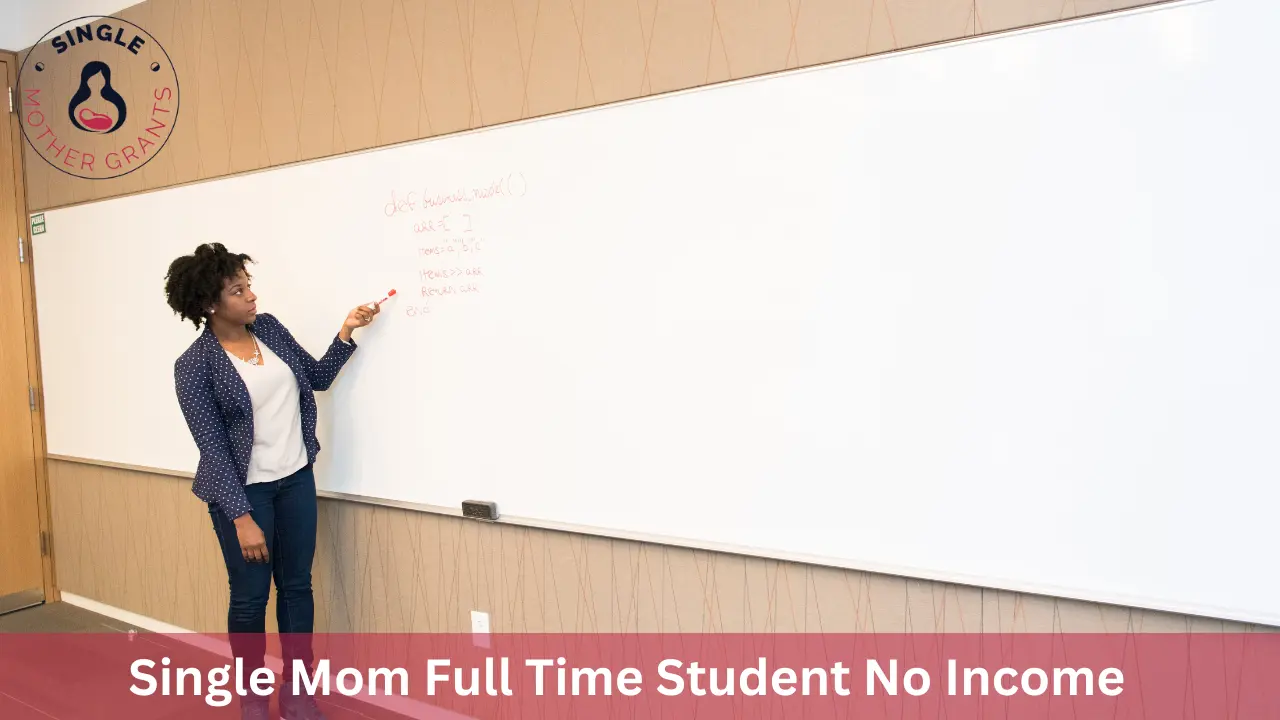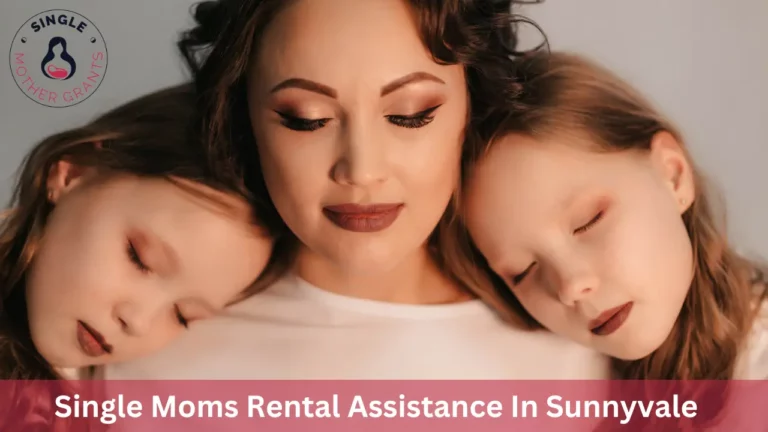Single Mom Full Time Student No Income
A full-time single mom student is a legal tax status which is important to decide tax exemptions. Depending on how your school considers full-time students your student status will be decided. There are different rules and requirements for full-time students. This guide will help to make tax season a bit easier and learn whether single moms full-time students with no income file taxes.
How Single Mom Full-Time Students With No Income File Taxes?
A full-time single mom student is enrolled full-time in a post-secondary institution and is eligible to receive tax breaks. The school determines the volume of coursework which will be considered full-time. Federal student aid awards like Pell Grants are generally larger for full-time students compared to part-time students. Single moms who want to be eligible for on-campus living and scholarships should enroll in this educational institution full-time. Even though tax requirements may differ for full-time single-mom students, the full-time status alone does not exempt one from paying federal income taxes. As per IRS website full-time students including single moms who are United States citizens or residents should consider the following details to determine whether they have to file federal income tax returns or not.
- Your age
- Filing status
- The amount earned as well as unearned income
- Your present dependency state means if you’re considered independent or if someone is claiming you as a dependent on their tax return.
There are factors such as filing and dependency status, age, and income requirements that you need to calculate. If a single mom’s income falls below the income requirements they do not have to file a federal tax return. However, they may wish to file an income tax return if they are eligible for a refundable credit or if they are due a refund. As per IRS full-time students are individuals under age 19 or adults under age 24 who attend educational programs for a minimum of five months per calendar year.
Full-Time Students And Educational Aid
86% of college students receive financial aid in the USA. Financial aid is free money that will help you in covering the educational cost. This is awarded to students who demonstrate a financial need and other factors like degree-seeking status and enrollment. The eligibility criteria to receive financial aid will be set by the awarding entity and the institution. Generally to receive financial aid single mom students should enroll minimum part-time or at least 6 credit hours, be a United States citizen, and enroll in a degree program or certificate program. Federal student aid like loans, grants, scholarships, work-study, or any other aid helps single moms to cover their educational expenses. There are a lot of benefits that come with being a full-time single mom student.
What Type Of Tax Forms Do Single Mom Students Need?
Single-mom students who are filing taxes for the first time should keep track of all the forms they need. Following are the student form which can be required:
1.1040
It is a basic income reporting form that is used by all full-time students. If you are making student loan payments then you have to complete schedule one form or schedule three if you are claiming credits for childcare expenses or education expenses.
2. State Tax Return Forms
Every state in America has its own rules related to paying state taxes. The State Tax Return Forms are for nonresidents, residents as well as part-year residents.
3. 1098-E
Single-mom students who have paid interest on student loans the previous year need to submit this form. This form will be mailed to you by your loan servicer. You can include this in your tax filing to deduct interest payments from federal taxes.
4. 8863
You can download and complete this form to check if you are qualifying for tax credits for college students.
5. W-2
Single mothers who have earned $600 or more at the job the previous year are required to fill out this form. Your employer will provide with you a W-2 form which will show if you had any income tax withheld. You need to make sure you include it while filing your tax return.
Undocumented Student Tax Forms
Taxes are paid by DACA and undocumented students in the same way as students with citizenship. Differences may arise when students do not have an SSN or Social Security number or if their taxpayer identification number gets expired. In such cases, you can complete the W-7 form to apply for or renew the taxpayer identification number. You can submit it with the rest of your tax return. However undocumented single-mom students who have a Social Security number or an active taxpayer identification number need not fill out this form.
International Student Tax Forms
1. 8843
International students including single moms with zero United States income should complete this form and submit it to the IRS for reporting that they have earned no income in this country.
2. 1042-S
This form is quite similar to the 1040 and international students have to fill this form. This form will be given to you by your employer to report your earned income. Your college will mail this form if you are awarded travel grants or certain stipends.
3. Student Loans And Taxes
Single mom students can deduct up to $2500 in 2023 of what they have paid on student loan interest the previous year. This is possible if your modified adjusted gross income was less than $85,000 if you have been single or $170,000 if you have been married. The modified adjusted gross income is equal to the total income minus expenses like alimony payments and business expenses if you have them. But you may not qualify for this deduction in case your employer has paid the student loan interest via an employee assistance program. Single-mom students need to make sure to include the 1098-E form that their loan servicer has mailed at the time of filing taxes.
Scholarships And Taxes
Generally, grants and scholarships which cover college fees and tuition are tax-free and are not considered a part of your income. But if you have used any funds from the scholarship or grants to cover travel, room and board, or any other student expenses then you need to include the amount as a part of your taxable income. Besides, grants enable single-mother students to contribute to research and acquire an education. If this applies to your situation then you need to report the payment as taxable income unless you have participated in any of the below programs
- The Federal Work-Study Program
- Armed Forces Health Professions Scholarship And Financial Assistance
- National Health Service Corps Scholarship
Tax Breaks For Single Moms Students
A prime advantage of filing taxes as a single-mom student is that you can qualify for deductions or education credits. There are two types of education tax credits for single-mom college students or people who claim students as dependents such as the following:
1. The American Opportunity Tax Credit
This tax credit is available to parents of students or a few students. To qualify for the tax credit you need to make sure that your moderately adjusted gross income is less than $80,000, you are in the first four years of your higher education, and you have enrolled in a certificate, degree, or post-secondary program for a minimum of half time. This tax credit provides a credit back for specific education expenses like tuition costs for up to $2500. Besides this credit is also refundable which means that in case the credit exceeds the amount of tax you owe then you can get the remaining credit refunded to you.
Single-mom college students are required to file a tax return if they have earned a specific income. The income threshold depends on a lot of factors such as whether they are married or dependent. Generally, a single-mom student earning more than $12,950 has to file a tax return. Single moms who have dependents such as a younger sibling or child to financially support cannot be someone’s dependent. In that case, they have to file their taxes as the head of the household and not a single person and in this way, they can claim the dependency exemption.
2. The Lifetime Learning Credit
Single-mom students who do not qualify for the American Opportunity Tax Credit can be eligible to qualify for The Lifetime Learning Credit. This credit is made available for full-time or part-time students who have taken admission to a credential, degree, or job skills training program. Besides you can use the tax credit if you have completed four years of higher education successfully. The Lifetime Learning Credit offers credit up to $2000 and unlike the American Opportunity Tax Credit, it is nonrefundable. You need to complete the 8863 form to make sure you are qualifying for this student tax credit.
Conclusion
Full-time single mom student is a legal tax status for determining exemption. Full-time is generally considered when you enroll in 12 credit hours in an accredited post-secondary institution; however, such an educational institution defines the full-time status independently. Guardians and parents supporting their full-time students can claim them as dependents on their tax returns to receive a deduction from credits and taxes. As a single-mom student, you might be wondering whether you need to file a tax return as the tax season rolls around. Filing tax returns may be a necessity for some students while may be optional for others. Whether you have to file a tax return depends on certain factors including your gross income and the fact whether your parents are claiming you as a dependent. As per IRS, a dependent means the age of the student should be 19 by the end of the relative tax year or below 24 at the end of the year. Further you need to live with your parents for more than half of the year. If you’re a dependent you might have to file a return depending on your income. However single moms with no income need not file a tax return.







